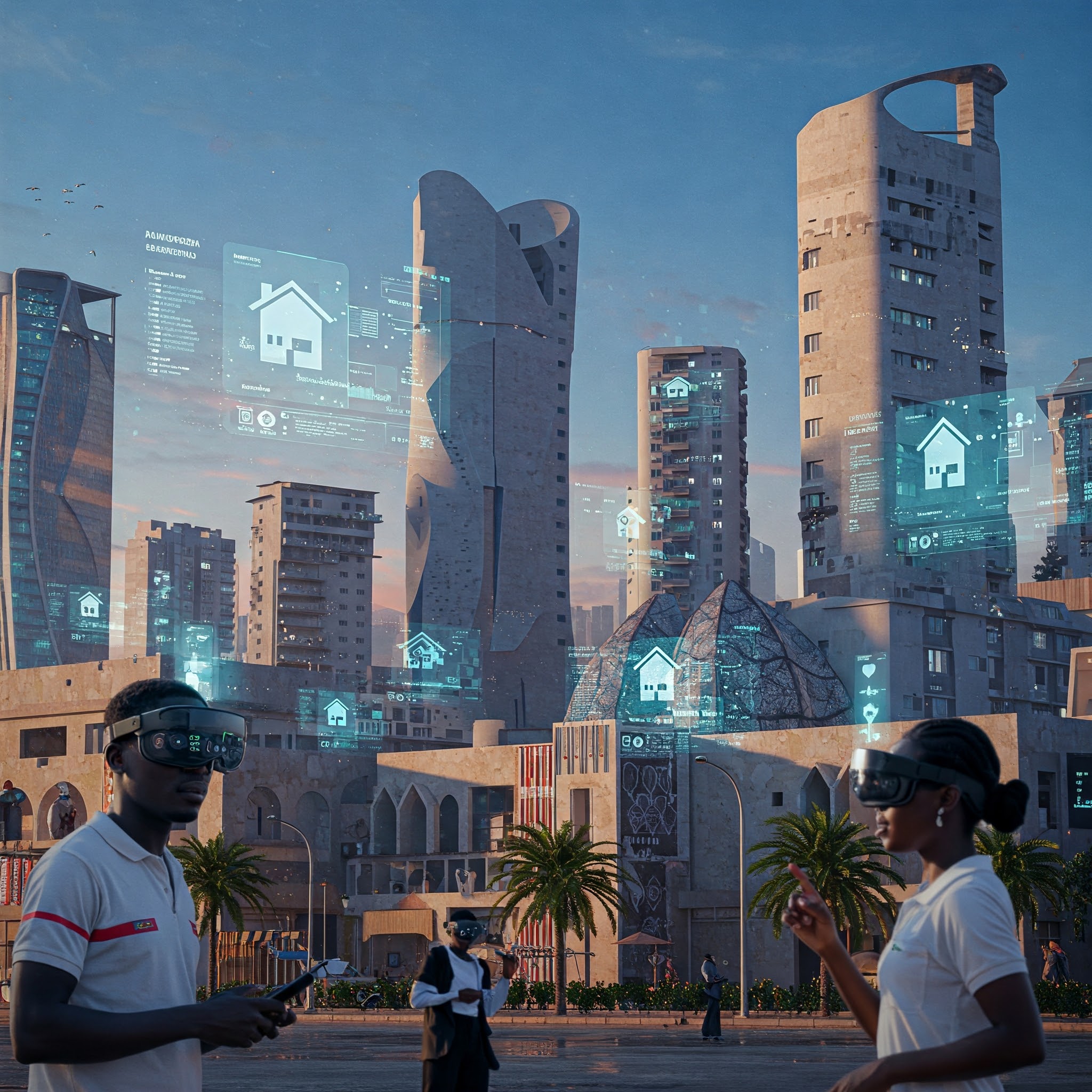
The real estate market in Cameroon, while currently navigating the initial stages of technological advancement and integration, stands on the cusp of a potentially profound transformation. Imagining a future where digital tools are more deeply embedded in every facet of real estate transactions reveals exciting possibilities for increased efficiency, transparency, accessibility and most importantly wealth creation. This article explores how digital technologies could revolutionize the real estate landscape in Cameroon.
The Potential of Ubiquitous Online Property Platforms:
While digital marketplaces like Digital Renter exist, their widespread adoption and sophistication could dramatically alter how Cameroonians find and pay for properties. Imagine a future where:
- AI-Powered Search and Recommendations: Platforms utilize artificial intelligence to understand user preferences and provide highly personalized property recommendations, going beyond basic filters.
- Interactive 3D Models and Virtual Reality Tours: Instead of static images, potential buyers and renters could immerse themselves in realistic 3D models and even virtual reality tours, experiencing properties as if they were physically present, regardless of their location.
- Integrated Neighborhood Information: Platforms could provide comprehensive data about neighborhoods, including school ratings, crime statistics, transportation links, and local amenities, empowering informed decisions.
- Blockchain-Secured Property Records: Imagine a future where property ownership and transaction history are securely stored on a blockchain, increasing transparency and reducing the risk of fraud and disputes.
Transforming Property Viewings with Augmented Reality:
Beyond virtual tours, augmented reality (AR) could overlay digital information onto real-world views. Picture this:
- On-Site AR Overlays: Potential buyers could use their smartphones or AR glasses to view property layouts, furniture placements, and even potential renovations superimposed onto the actual space.
- Remote AR Guided Tours: Real estate agents could conduct live, interactive property tours remotely using AR, guiding prospective buyers through a property while highlighting key features and answering questions in real-time.
Revolutionizing Transactions with Digital Processes:
The often lengthy and complex real estate transaction process could be significantly streamlined through:
- Secure Digital Document Management: Imagine a future where all property-related documents – contracts, titles, inspection reports – are securely stored and managed digitally, accessible to authorized parties at any time.
- Smart Contracts for Automated Transactions: Blockchain-based smart contracts could automate certain aspects of the transaction process, such as the release of funds upon fulfillment of agreed-upon conditions, increasing speed and security.
- Online Notarization and Legal Processes: While requiring regulatory changes, the potential for secure online notarization and digital legal processes could significantly reduce the time and cost associated with property transfers.
Data-Driven Insights for Informed Decisions:
The power of big data and advanced analytics could provide invaluable insights into the Cameroonian real estate market:
- Predictive Analytics for Property Values: AI algorithms could analyze historical data and market trends to provide more accurate predictions of future property values, aiding investment decisions.
- Personalized Investment Recommendations: Based on individual risk profiles and investment goals, technology could offer tailored recommendations for real estate investment opportunities.
- Optimized Property Management: Landlords could utilize data analytics to optimize rental pricing, predict maintenance needs, and improve tenant management.
Addressing Challenges and Fostering Trust:
Realizing this technologically advanced future requires addressing existing challenges:
- Bridging the Digital Divide: Efforts to improve internet access and digital literacy across all demographics are crucial to ensure equitable access to these technological advancements.
- Building Trust and Security: Robust cybersecurity measures and clear regulations are essential to build trust in online real estate transactions and protect user data.
- Upgrading Digital Payment from USSD to HTTPS: The digital payment infrastructure (mobile money) needs to be upgraded from USSD to HTTPS to enable better data integration for extensibility, fraud, security and more.
- Adapting the Legal and Regulatory Framework: The legal and regulatory environment needs to evolve to accommodate and support digital processes in real estate.
- Promoting Collaboration and Education: Collaboration between technology providers, real estate professionals, and government agencies is necessary to drive adoption and educate stakeholders on the benefits of these technologies.
Conclusion: A Glimpse into the Future:
The advancement and integration of technology holds immense potential to reshape the real estate market in Cameroon. While the journey towards full digital transformation will require overcoming existing challenges, the possibilities are compelling. Imagine a future where property search is intuitive and immersive, transactions are seamless and secure, and decisions are driven by data-backed insights. By embracing innovation and strategically addressing the existing hurdles, Cameroon could unlock a more efficient, transparent, and accessible real estate market, benefiting all stakeholders and fostering greater economic growth. The question isn't if technology will change the market, but how profoundly and how quickly Cameroon embraces this digital future.